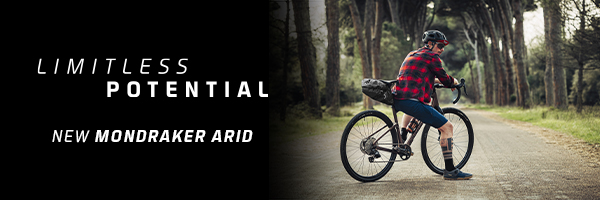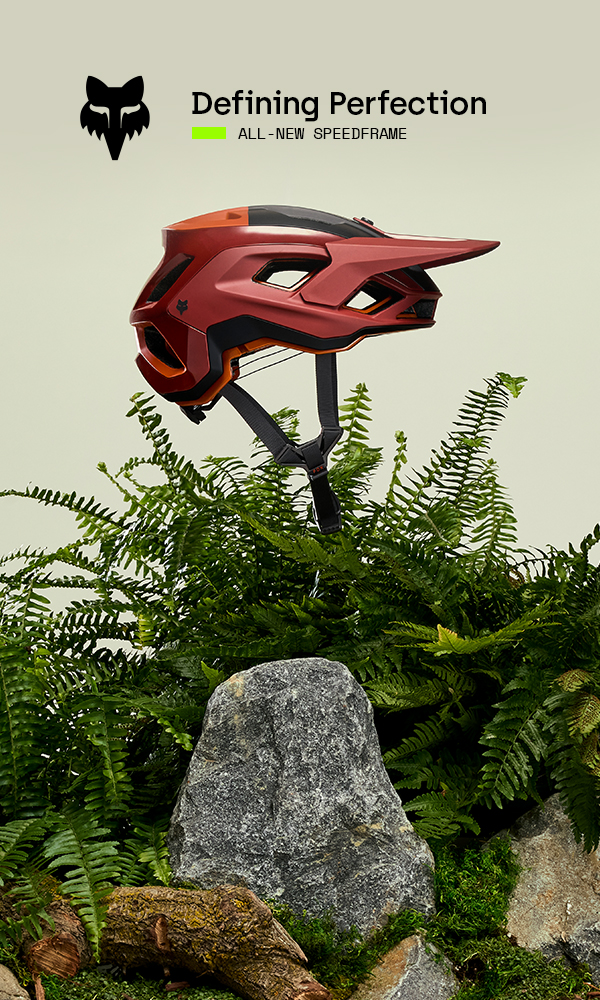As Ryan Wilson continues East on his trip through Greece, Türkiye, and Georgia, he reaches a place he’d dreamt about riding for years—the Hakkâri province in Southeastern Türkiye. Conflict has made traveling to this region challenging in recent decades, but stunning mountain roads and villages filled with incredibly hospitable people made for one of the most memorable routes he’s ever done…

“You shouldn’t go this way,” a man said to me in English with his phone up against his ear as I pedaled up the steep climb out of Beytüşşebap. It turned out he was talking with the local authorities to ask about the situation ahead for me. “I won’t force you, but I would strongly advise that you take another road,” he said. “There may be military operations” pointing up the mountain where the small path I’d planned to take was going.
He turned around and headed back down into the village while I hesitated for a moment before continuing up the climb. A minute later I stopped again, re-checked my map, swallowed my pride, and decided to heed his advice, turning back to take another route. Sometimes locals will call a place dangerous simply because it’s a challenging road or even just a short stretch without villages or people and those are easier to ignore, but this one felt different. Mostly, I didn’t want to be that cliche dumb tourist on the news who ignored the warnings out of stubbornness and paid the price.
Instead, I made my way down the main road from town for a while before splitting off a bit further into the valley, bypassing one jeep road stretch high in the mountains. Here, I figured there would be some sort of military checkpoint to give me the thumbs up or down to take the more “adventurous” route toward Hakkâri than the main highway. However, when I got to the turn-off there was nothing. A handful of smallhouses at the junction, but no big gates to stop me.

When an older man approached me from one of the houses, he motioned without words as if to ask “Where are you going?”. I pointed up the road I wanted to take and simply said “Hakkâri”, a town on the other side. He pursed his lips and furrowed his brow as if to indicate it would be a tough ride. “Yavaşça!” (Slowly), I said with a laugh in my limited Turkish to tell him I knew there was a big mountain to cross. He smiled, gave me a thumbs up, and went about his business, which I took as an indication to proceed as planned.

Hakkâri Backroads
It was eerily quiet, climbing through a big dusty valley with steep-sided cliffs all around. The riverbed was dry and there wasn’t even a light breeze, so I could hear a pin drop from across the valley. I’d be lying if I said I wasn’t a little paranoid at every little rustle in the bushes. Was it a bear? Or was it some “rebel fighter” living up in a cave in the cliffs that I’d heard so much about before I came to the area? Maybe it was just my imagination. Probably a goat if we’re being real, but sometimes your mind plays tricks.
I passed through one last little village that seemed to be entirely inhabited by children, at least that’s how it seemed around midday. They were at first a bit stunned into a shy silence at my presence before the shock wore off and they shouted out to ask me if I was Turkish or Kurdish. “Amerikan!” I said back. They let out a “Woah!”, looking at each other. One yelled out an excited “Hello! My name is!” in English, but didn’t complete the sentence. We did a little impromptu English lesson for a couple of minutes, using every last drop of my Turkish before I continued on up the climb.
The road gets a bit rougher as I leave the village. The power lines disappear, and the trees start to thin out. A man in a new pickup truck, the only vehicle I’d seen since I turned off the main road, comes up next to me as I get about three-quarters of the way up the climb and in perfect English says “You have to be careful up here.” Again, he said “military operations”. “But don’t worry, I will warn them you are coming”.

I got to the top of the pass, with a stunning view toward the switchbacks I’d be descending into the next valley. A long and at times overgrown double-track descent led me down toward the main road as the sun started to disappear behind the cliffs. Just as I was approaching the intersection, I was greeted by a large gate next to a building with the Turkish flag, a row of armored vehicles, and a couple of not-so-happy guys with large guns.
“Pasaport”, one of them said as he opened the first gate just enough for me to barely squeeze my bike by. I pulled out my documents from the depths of my bags and he looked them over for a while, inspecting every page, and double-checking every stamp. Holding it up below my face and looking back and forth at me and the photo no less than 5 times.
He squinted one last time at my bike, handed my passport back to me, and opened the next gate without a word. This is usually the part where they break their stern demeanor and invite me for tea, but no such invite came.


Instead, it was a lovely local family that was having a picnic by the river only a kilometer down the road that spotted me pedaling along and invited me to share in their roadside feast. This would be a common theme in the region around Hakkâri as locals here are amongst the most hospitable people in the world.

Cilo at Long Last
I’d spend a few days around the city of Hakkâri before heading toward Cilo Mountain, the second tallest in all of Türkiye at 4,135m (13.6k ft). This was actually the first place that I’d marked on the map as I was planning my very first trip to the country back in 2020. But, at the time, the conflicts in this area right at the Iraqi border were a little too hot, and things have calmed down considerably.

At first glance, you wouldn’t have any idea of the conflicts that the area has gone through, as the villages seem as calm and peaceful as any other, but the signs started to pop up the longer I was there. Some old buildings riddled with bullet holes. The driver of a van with an old Kalashnikov sprawled across his dashboard. The frequent military helicopters flying overhead. As soon as I’d be lulled back into the tranquility of the mountains, there was a dose of reality to wake me up to what this region has gone through over the years.


Passing through one of the last villages, a couple of local kids ran toward me with excitement saying “Pompa! Pompa!”,making the motion of a bike pump. One of them ran and got a bike from their house, which had two flat tires. We pumped them up and one of the kids jumped on the bike and rode with me for a few kilometers up the spectacular valley. No doubt this kid has one of the best local rides on earth.
He stopped at a local spot to go for a swim and said I needed to come to his family’s house for tea when I return from the high mountains. It was an out-and-back to the foot of Cilo mountain, so I said I’d be sure to stop the next day, after a night of camping.



The road got steeper and the scenery became more dramatic with every curve in the road. It was even more impressive a place than I could have imagined from the days of staring at the topo maps of the region years ago. I made it to a ledge with a 360-degree view down into the valley and up to Cilo mountain as the sun disappeared and decided to call it a night there.

I prepared my oats in the morning as I heard what I assumed was a cow or a goat on the side of the mountain, only to look over at the last minute to see a brown bear sprinting down the loose hillside in the direction of the road that I’d climbed up the day before. As I packed up my tent and descended in that direction, I confirmed that notion when I spotted a set of fresh bear tracks in the dirt.


I had one more climb to do, up to the trailhead of the hike to the lake, and here the views really opened up with incredible rock walls and glaciers that are still holding out even at the very end of summer.


I stashed my bike near the trailhead and hiked for a couple of hours to the lake, which still had chunks of glacial ice floating inside. Truly one of the most stunning places I’ve ever been.

Local Hospitality
True to my word, I descended back toward the villages at the bottom of the road, and once again spotted the kids from the day before, who brought me to their home to meet their parents and share some local food, and of course, fix a few more flat tires.
I left in the evening to find a place to camp, but as I reached the next village over, the local Imam, Haydar, (who leads the prayer at the mosque next door) invited me to stay at his house and meet his family. I may come off as a broken record here, but these were some of the most friendly people that I’ve ever met. As soon as I arrived I was like another member of the family. Copious amounts of çay (tea), food, and sweets left us all full as they asked questions about what life is like moving from place to place all the time.


Haydar took great pride in showing me photos of his bee farm, which is up near Cilo Mountain, and sent me away with a massive tub of fresh honey that would easily last months (years?) on the road. It was way too big, but I couldn’t say no. To this day, many months later, I still get messages from Haydar with updates on his honey farm and his chicken coop.

The Road to Sät Göl
I pedaled East in the direction of the Iranian border and turned south in Yüksekova to explore Sät Gölleri, another stunning cluster of mountains and lakes next to the border with Iraq, which was once a base of the Kurdish Workers’ Party (PKK), a group that has clashed with Turkish forces for decades. In recent years, these clashes have largely moved south of the border, though some flare-ups still happen on this side of the line.
There is a stark juxtaposition between conversations I had with Kurdish locals I talked to and the military officers I’d meet at each checkpoint. When I talked about safety with locals and shepherds that spend all of their time in these mountains they’d say it’s completely safe to ride and camp with no issues, while officers often painted a different picture, with some saying I should never sleep outside anywhere in the area as if I could be kidnapped without notice. They’d sometimes point vaguely in the direction of the high mountains and say “terrorists”. It wasn’t always easy to know what to believe.



After a stern warning at one checkpoint in the evening, I rode into the next village and decided to look for the Mukhtar (village leader) to ask if there was a place I could camp for the night before heading up the pass. They invited me into a local home set in the picturesque landscape for dinner and let me sleep in their house as I met what seemed to be almost everyone in the village.
Life here was clearly challenging, with economic opportunities largely limited to working with animals, but there is beauty in the self-sustaining nature of life here. Families are tight-knit and often live with many generations together in one place.

A Change of Plans
In the morning, the mukhtar put a call in to the military outpost at the summit of the pass to make sure I’d be fine with my route that ascended the mountain, but we were told I’d have to backtrack and check in with a different outpost in person, in a totally different area, before I could enter. It was a long detour that would make it difficult to reach my destination in one day, so the mukhtar made a call to the local shepherd shuttler and let me throw my bike in the back of their truck, hitching a ride about halfway, through the checkpoint where I got the thumbs up to proceed, and up toward their pasture where they were set to spend the day milking goats.



We met with their herd and I prepared my bike to ride, but they couldn’t send me on my way without sharing in a proper shepherd feast and a few glasses of tea.

I said goodbye to my new friends and slowly worked my way up the steep curves of the road to the Sat lakes. Small roads splintered off toward sharp peaks north of 3150m (10.3k ft). The sun started to drop in the sky, and I began thinking of which spot I’d like to set up my tent for the night. Some locals in a city nearby told me about an area where people camp, so I figured that would be my best bet to not ruffle any feathers. Turns out I was wrong because before I could even pull out my tent some military members told me I can’t camp anywhere and would have to ride all the way back to the city, nearly 70km away (in the dark, through brown bear country) and check-in with the police to have them call and verify I arrived.
I pleaded that 70km on a fully loaded bicycle is not the fast, easy trip they thought it was, and that it was likely more dangerous than simply setting up camp where the locals do. Certainly riding back was not something I wanted to do that night, already with a couple of long days in my legs.
We went back and forth for half an hour before we came to the compromise that I would take the rough road that I’d originally tried to climb that morning back toward the village Mukhtar and stay at a house in the village again for the night.

Sunset Descent
I was told not to stop for anything or anyone on my way down, though the descent was so incredibly steep and long that my brake pads immediately disintegrated and I basically couldn’t stop if I wanted to. I even had to Fred Flintstone stop a few times as I gathered more momentum than my completely cooked brake pads could handle. Normally I’d stop here and swap on some fresh ones, but I followed orders and tried to keep moving, even if I was scraping metal on metal.

The last moments of sun beamed through the rain clouds as I made my way down the many switchbacks on one of the most stunning roads I’ve been on, with Mount Cilo as the backdrop. I could see the village from more than a thousand meters above, but it was still so far away. It’s a shame that so few people get to experience this place.

I got back to the house with my friend Cafer and his family and was greeted with even more warmth and hospitality than the day before. Seeing the family again was a big silver lining to having my grand plans of camping at the lakes fall apart. In bike touring, you get to have countless interactions with friendly people all over the world, but you don’t often get to see them again once you’ve said your goodbyes, so I was incredibly thankful to get that opportunity here, and I’m looking forward to the day that I can return to the region again and re-unite with the people that make this area so special.
The Route:
IMPORTANT: The pass above Sat Göl at km309 is FORBIDDEN to cross as there is a military outpost there. I was only allowed to cross due to some convoluted circumstances described in the article. If you try to replicate this route, I would treat Sat lake as the end point of an out-and-back and do not attempt to climb from or descend to Yeşiltaş, over the 3150m pass.
While I generally felt very safe in the region overall, the security situation in the Hakkâri area can change at any moment, so it’s important to ask locals about the current security situation and proceed at your own risk!

See the Prospector frame he’s touring on and more at Tumbleweed Bikes.
















































































































































































